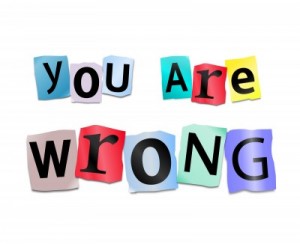By Rose O. Sherman, EdD, RN, FAAN
“The best of us sometimes eat our words.” J.K. Rowling
 There is a very compelling TED talk Is the Obesity Crisis Hiding a Bigger Problem that was recently given by Dr. Peter Attia. As a young surgeon, he felt contempt for an obese patient with diabetes. She was overweight, and he felt she was responsible for the fact that she needed a foot amputation. But years later, Attia received an unpleasant medical surprise of his own when despite exercise and a healthy lifestyle, he began gaining weight, developed metabolic syndrome and was a borderline diabetic. This led him down a whole new path in medicine and research. Based on his current work, he questions his assumptions and those of other doctors about obesity. He now asks could the precursors to diabetes cause obesity and not the other way around. Are we waging the wrong medical war?
There is a very compelling TED talk Is the Obesity Crisis Hiding a Bigger Problem that was recently given by Dr. Peter Attia. As a young surgeon, he felt contempt for an obese patient with diabetes. She was overweight, and he felt she was responsible for the fact that she needed a foot amputation. But years later, Attia received an unpleasant medical surprise of his own when despite exercise and a healthy lifestyle, he began gaining weight, developed metabolic syndrome and was a borderline diabetic. This led him down a whole new path in medicine and research. Based on his current work, he questions his assumptions and those of other doctors about obesity. He now asks could the precursors to diabetes cause obesity and not the other way around. Are we waging the wrong medical war?
An interesting point in this TED talk is our reluctance to go back and question our basic assumptions when we confront a difficult challenge. Even when there may be compelling evidence on a the surface to suggest that our assumptions are correct, there may be more to the story in how things are related to one another.
Many futurists contend that a key skill for the future will be the ability not only to test our assumptions but to “unlearn” long held beliefs. If you have any question about how challenging this is – just look at the slow implementation of new evidence-based practices in nursing.
Assumptions can be driven by personal biases, an overly optimistic/pessimistic attitude or a failure to explore other perspectives on issues. A critical step for nurse leaders is to challenge our own beliefs and to ask better questions such as:
- What am I not considering in this situation?
- What do those with opposing viewpoints believe?
- How do my younger staff view this issue?
- Is it possible that I am wrong in my thinking?
- Have things changed and I am not aware of new evidence?
- How is my own life story affecting how I think about this situation?
- Could my own reluctance to change be impacting my viewpoint on this?
- Do I feel threatened when presented with new information?
- If I came into this situation with no experience, would I make the same decision or hold the same viewpoint?
- How would I react if I found out that the basis of my thinking on a key issue was totally wrong?
As we move forward with healthcare reform, it is likely that some of our basic assumptions about nursing and healthcare will be tested. Yet the key to effective nursing leadership will be this “unlearning” of what we may have always believed and willingness to set aside some of our sacred cows.
© emergingrnleader.com 2013


 LinkedIn
LinkedIn Instagram
Instagram